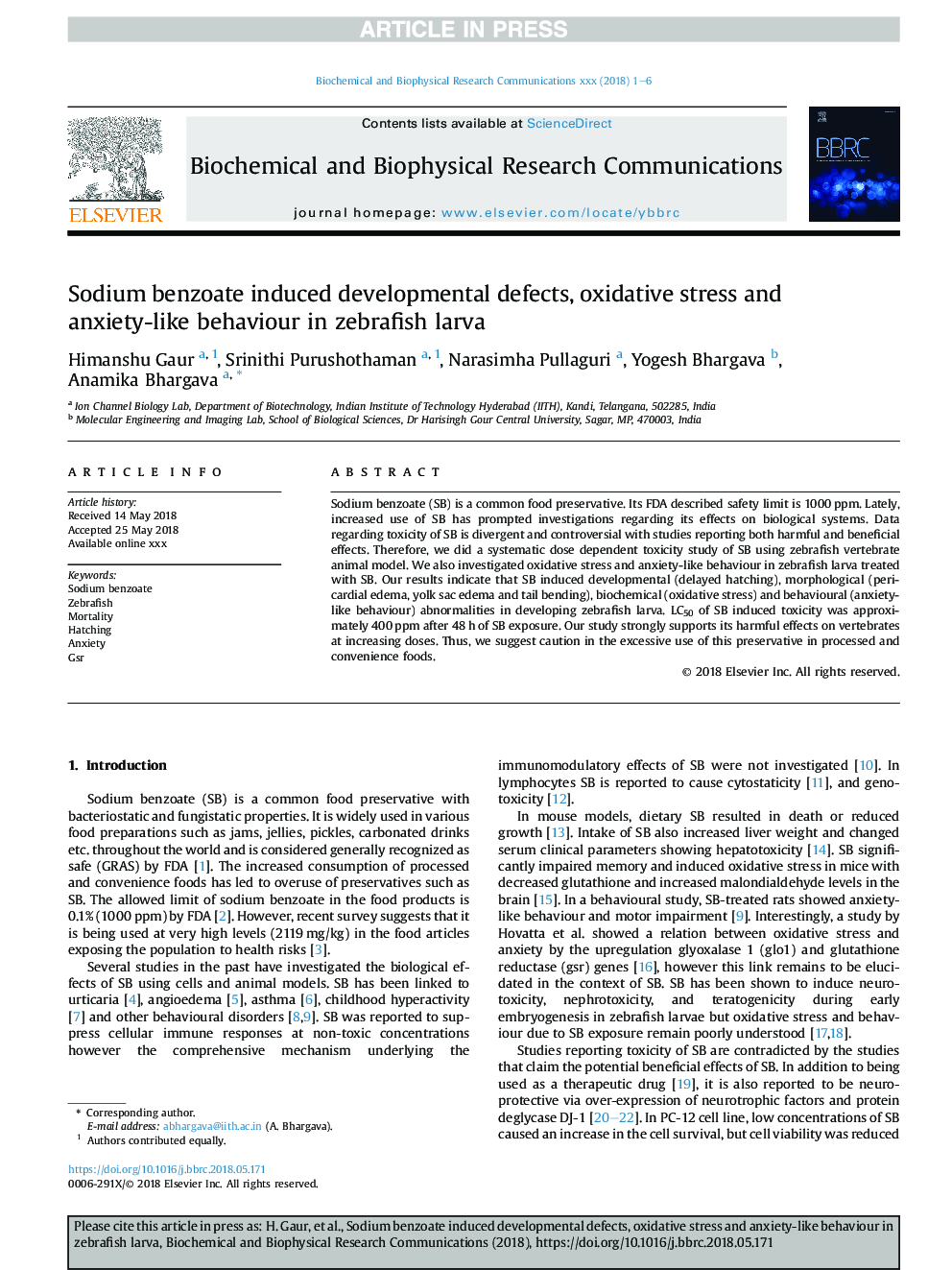| Article ID | Journal | Published Year | Pages | File Type |
|---|---|---|---|---|
| 8292362 | Biochemical and Biophysical Research Communications | 2018 | 6 Pages |
Abstract
Sodium benzoate (SB) is a common food preservative. Its FDA described safety limit is 1000â¯ppm. Lately, increased use of SB has prompted investigations regarding its effects on biological systems. Data regarding toxicity of SB is divergent and controversial with studies reporting both harmful and beneficial effects. Therefore, we did a systematic dose dependent toxicity study of SB using zebrafish vertebrate animal model. We also investigated oxidative stress and anxiety-like behaviour in zebrafish larva treated with SB. Our results indicate that SB induced developmental (delayed hatching), morphological (pericardial edema, yolk sac edema and tail bending), biochemical (oxidative stress) and behavioural (anxiety-like behaviour) abnormalities in developing zebrafish larva. LC50 of SB induced toxicity was approximately 400â¯ppm after 48â¯h of SB exposure. Our study strongly supports its harmful effects on vertebrates at increasing doses. Thus, we suggest caution in the excessive use of this preservative in processed and convenience foods.
Related Topics
Life Sciences
Biochemistry, Genetics and Molecular Biology
Biochemistry
Authors
Himanshu Gaur, Srinithi Purushothaman, Narasimha Pullaguri, Yogesh Bhargava, Anamika Bhargava,
